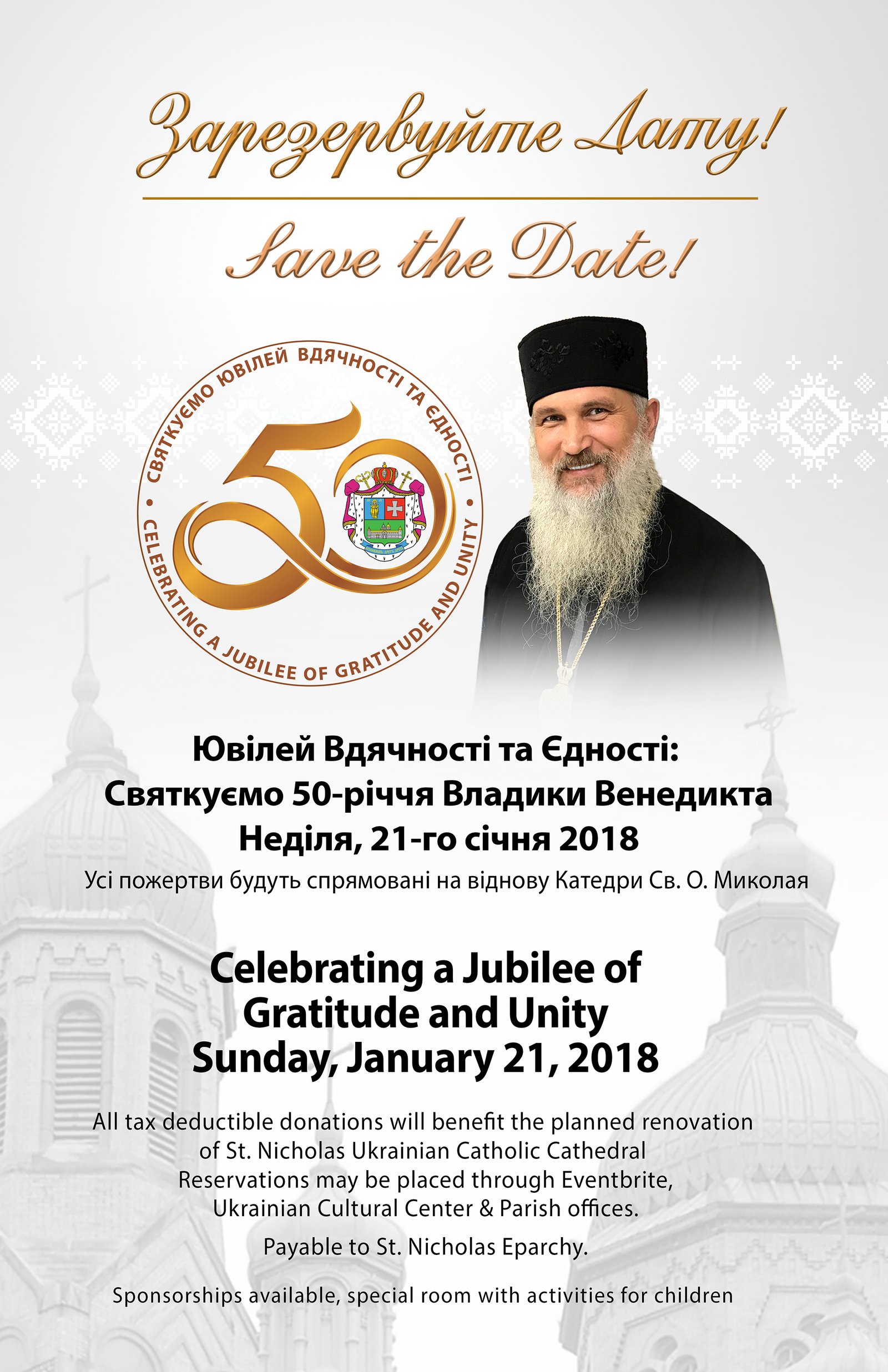TO OUR CLERGY, HIEROMONKS AND BROTHERS, RELIGIOUS SISTERS, SEMINARIANS AND BELOVED FAITHFUL,
Glory to Jesus Christ!
One day, during the pre-Nativity liturgical service celebrated at the Basilica of St. Sofia-Wisdom of God in Constantinople, St. Gregory of Nazianzus, the Theologian, overwhelmed by the Holy Spirit, exclaimed: “Christ is Born! Go out to meet Him!” This short phrase expresses the innate meaning of the forty days of the Nativity Fast, popularly known as the Philippian Fast. This period isn’t filled with grief, but rather with joy, because Christ is coming to transform the world and grant us salvation not only through His suffering and resurrection, but also through His incarnation.
True God from true God, begotten, not made descends from heaven to us, in order to be with us in our mundane earthy life often filled with difficulties. The Lord comes because He dearly loves us and desires to make the first step toward reconciliation and lift up our human nature broken and damaged by sin. Thus, the Nativity Fast is not a mere expectation or an effort to recall the important historical event of Christ’s birth that occurred more than 2000 years ago, but primarily, it is a time of our soul’s preparation for the encounter with the incarnated Christ. How should we prepare ourselves for this salvific event of Christ’s Nativity?
The secular world proposes its own version of such preparation by using festal illumination of our streets, bright and ornamented windows of our shops and richly decorated evergreen trees. The entertainment industry employs various sales tactics which entice us to make more purchases. While in the whirl of preparatory activities, we might forget to prepare ourselves to meet with the newly born child, who is God eternal. It is important to know that the festive atmosphere would only be filled with adequate internal meaning when we repent and open our hearts in order to make it ready for the Birth of Christ.
Our liturgical texts pertaining to the Nativity Fast period often proclaim: “Bethlehem, Get Ready” or “the Cave of the Nativity Be Ready,” although, in reality, poor Bethlehem and the meager cave is our destitute human existence which is in need of God’s nurturing. The Lord did not enter this world in the royal palace, thus, if we want God to live with us and be born in us, we have to cast aside any kind of pride and luxury of self-indulgence and chose a path of humility and quiet joy from the fact that “God is with us.” Therefore, if we would like to prepare “a modest cave in our soul” for the birth of the child Jesus, then it would be imperative to get rid of the imaginary illusion of our self-worth and gladly accept the modest circumstances of our present lives as given to us by God for our benefit and salvation.
During the Nativity Fast, the Holy Mother Church puts in front of us the images of our forefathers, fathers and prophets, who foretold the coming of the Savior. Although, they were not soothsayers, or using the modern term “futurists,” but having been inspired by the Holy Spirit, they spoke on behalf of God about essential things concerning our present life with God. After all, it is crucial to maintain our relationship with God “here and now” rather than “somewhere and sometime.” Apostles Andrew and Phillip, whom we commemorate during the Nativity Fast, understood this well, since they sought intimacy with Christ and unconditionally followed Him in search of “light that enlightens every person.” Similarly, amid these dark late autumn days we strive for sunshine and warmth that can only be given to us by the “authentic Sun of Truth”- Christ, the Savior. Therefore, the aim of fasting is to strive to be filled and sifted through by the uncreated light of God’s presence in our souls granted to us by the newborn Lord.
God’s Son leaves behind His Heavenly dwelling in order to become one of us. So, what should we leave behind during fasting? Traditionally, the Church calls to refrain temporarily from festive celebrations and some foods, but even more importantly – to abandon pride, laziness and all that alienates us from God, from all that is superfluous in our lives and interferes with the joy of celebrating the incarnation of Christ.
“The Lord is coming,” – exclaim our liturgical chants. He comes again and again to all of us together and to everyone in particular. So, let’s prepare a road for Him to our heart. We will light the lamps of our faith, open the caves of our souls and become prepared for the gift of the new life incarnated wants to grant us.
+Paul Chomnycky, OSBM
Eparch of Stamford
+Andriy Rabiy
Apostolic Administrator of the
Ukrainian Catholic Archeparchy of Philadelphia
+Benedict Aleksiychuk (author)
Eparch of St. Nicholas in Chicago
+ Bohdan J. Danylo
Eparch of St. Josaphat in Parma
+John Bura
Auxiliary Bishop of Philadelphia
Pylypivka 2018


